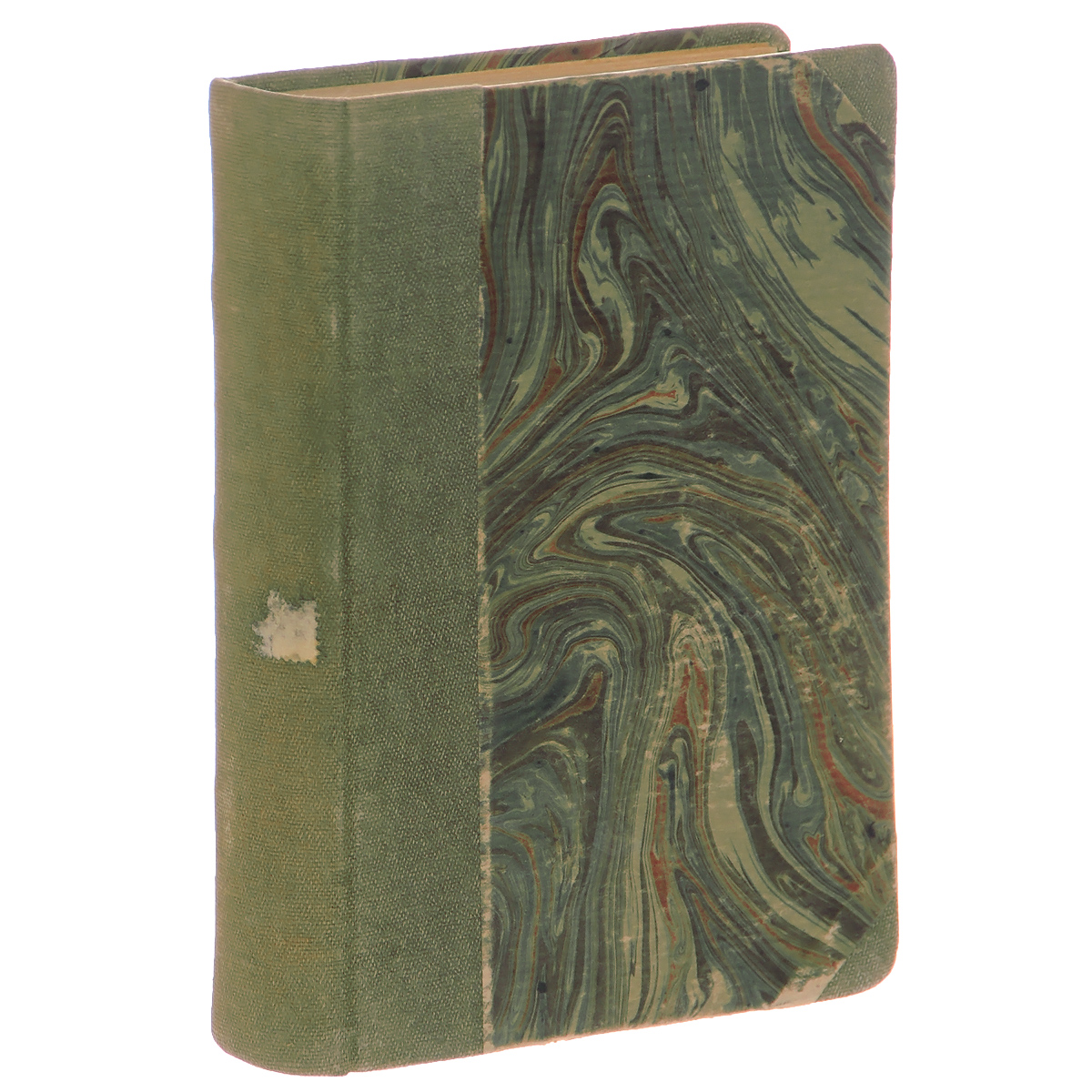Книга: Matilde Serao «Adieu amour»

|
1899 год, Париж. Издательство Librairie Paul Ollendorff. Издание во владельческом переплете. Состояние хорошее. На титульном листе имеются владельческие подписи и печати. Вниманиючитателей предлагается книга "Adieu amour" . Издание не подлежит вывозу за пределы территории Российской Федерации. Издательство: "Paul Ollendorff" (1899) Формат: 130x180, 338 стр.
Купить за 1330 руб на Озоне |
Другие книги автора:
| Книга | Описание | Год | Цена | Тип книги |
|---|---|---|---|---|
| Addio, Amore! | Италия. 1913 год. Издательство Casa Editrice Madella. Новодельный, тканевый переплет. Состояние хорошее. На титульном… — Casa Editrice Madella, (формат: 125x190, 324 стр.) Подробнее... | бумажная книга | ||
| Castigo | Италия. 1913 год. Издательство Casa Editrice Madella. Новодельный, тканевый переплет. Состояние хорошее. На титульном… — Casa Editrice Madella, (формат: 125x190, 278 стр.) Подробнее... | бумажная книга | ||
| Castigo | Прижизненное издание. Турин, 1893 год. Francesco Casanova, Editore. Владельческий переплет. Сохранность хорошая. Вашему… — Francesco Casanova, Editore, (формат: 125x190, 388 стр.) Подробнее... | бумажная книга | ||
| Le amanti | — Public Domain, электронная книга Подробнее... | электронная книга |
Matilde Serao

Matilde Serao (March 7, 1856 – 25 July 1927) was a Greek-born Italian journalist and novelist. She was the founder and editor of Il Mattino, and she also wrote several novels.
Biography
Matilde was born in the Greek city of Patras to an Italian father and a Greek mother. Her father had emigrated to Greece for political reasons.
She worked as a schoolmistress in Naples, and later described those years of laborious poverty in the preface to a book of short stories called Leggende Napolitane (1881). She first gained renown as a result of the publishing of her Novelle in Il Piccolo, a newspaper of Rocco de Zerbi, and later by her first novel, Fantasia (1883), which definitely established her as a writer full of feeling and analytical subtlety.
She spent the years between 1880 and 1886 in Rome, where she published her next five volumes of short stories and novels, all dealing with ordinary Italian, and especially Roman, life, and distinguished by great accuracy of observation and depth of insight: Cuore infermo (1881), Fior di passione (1883), La conquista di Roma (1885), La Virtù di checchina (1884), and Piccole anime (1883).
With her husband, Edoardo Scarfoglio, she founded Il Corriere di Roma, the first Italian attempt to model a daily journal along the lines of the Parisian press. The paper was short lived, and after its demise Serao established herself in Naples where she edited Il Corriere di Napoli. In 1891 she founded Il Mattino, which became the most important and most widely read daily paper of southern Italy. The stress of a journalistic career in no way limited her literary activity; between 1890 and 1902 she produced Il paese di cuccagna, Il ventre di Napoli, Addio amore, All'erta sentinella, Castigo, La ballerina, Suor Giovanna della Croce, Paese di Gesù, novels in which the character of the people is rendered with sensitive power and sympathetic breadth of spirit. Most of these have been translated into English.
Matilde Serao is in a category of her own. She was a naturalist, but her naturalism should be understood in a much wider sense than that which is generally given to it. She was a naturalist because her books reflect life with the utmost simplicity of means, sometimes with an utter neglect of means, and at the same time she is an idealist through her deep sense of the beauty and nobility which humanity can attain, and to which her writings continually aspire. All her work is truly and profoundly Italian; it is the literature of a great mass of individuals, rather than of one peculiarly accentuated individual; the joy and pain of a whole class rather than the perplexities of a unique case or type pulsates through her pages. Serao's defects are always defects of style; her verbosity often clogs the movement of her narrative and mars the artistic effect of her always animated pages. Like Fogazzaro's, her speech is criticized as being too closely related to the popular speech of her particular region.
External links
Works by Matilde Serao at Project Gutenberg
References
This article incorporates text from a publication now in the public domain: Chisholm, Hugh, ed (1911). "Serao, Matilda". Encyclopædia Britannica (11th ed.). Cambridge University Press.
- 1856 births
- 1927 deaths
- Italian journalists
- Italian novelists
- Italian people of Greek descent
- People from Patras
Источник: Matilde Serao
См. также в других словарях:
AMOUR — «Dieu aimeras et ton prochain comme toi même.» Toute la civilisation judéo chrétienne est fondée sur ce double commandement énigmatique, dont la théorie freudienne semble fournir la version moderne lorsqu’elle montre l’injonction de jouir comme… … Encyclopédie Universelle
adieu — [ adjø ] interj. et n. m. • XIIe; pour à Dieu 1 ♦ Formule dont on se sert en prenant congé de qqn qu on ne doit pas revoir de quelque temps (opposé à au revoir) ou même qu on ne doit plus revoir. (REM. Dans le Midi, se dit souvent pour bonjour et … Encyclopédie Universelle
Amour anarchie — Album par Léo Ferré Sortie 1970 Enregistrement janvier, mars, avril, octobre 1970 au Studio Barclay, Paris (France) Durée 43:22 min (Vol. 1) 38:38 min (Vol. 2) … Wikipédia en Français
Adieu Gary Cooper — Adieu, Gary Cooper est un roman (ISBN : 2070384527) de Romain Gary, publié pour la première fois en 1964 en anglais sous le titre The Ski Bum, littéralement Le Clochard (ou le Vaurien) à ski. Résumé Lenny, le vaurien en question est un jeune … Wikipédia en Français
Adieu, Je T'aime — est un film français réalisé par Claude Bernard Aubert sorti en 1988 Sommaire 1 Synopsis 2 Fiche technique 3 Distribution 4 Lien externe … Wikipédia en Français
Adieu L'ami — est un film franco italien réalisé par Jean Herman et sorti en 1968. Sommaire 1 Synopsis 2 Fiche technique 3 Distribution 4 Ane … Wikipédia en Français
